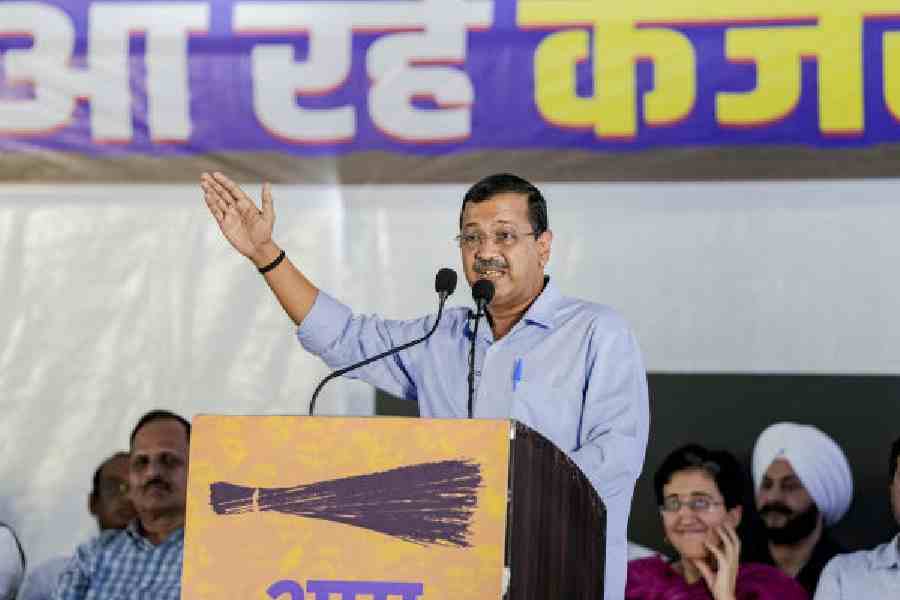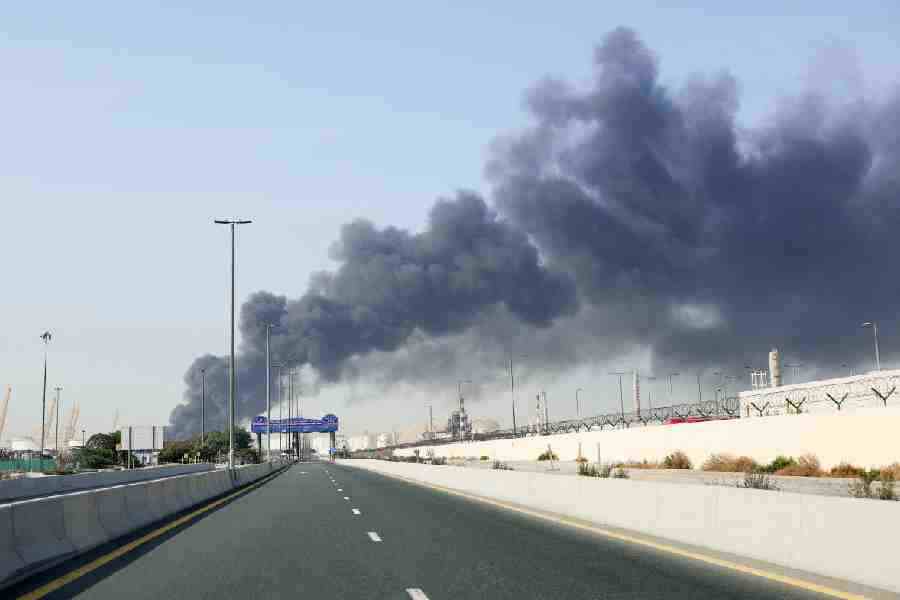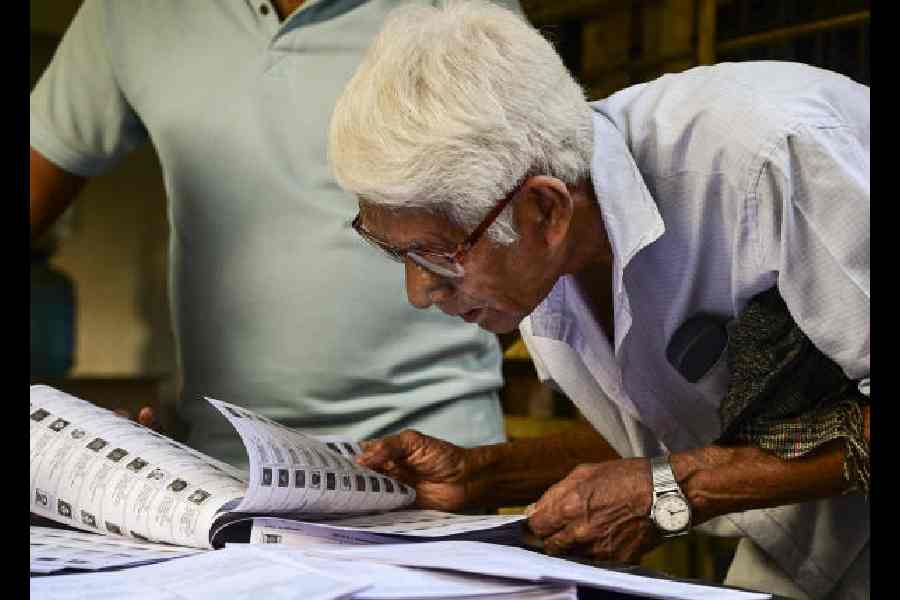 |
| Rosalin Lakra at her residence in Ranchi. Picture by Manik Bose |
Her voice could hold the attention of listeners for hours. A veteran at Akashwani, Ranchi, her programme still evokes a huge response. It was the morning of my birthday and my rendezvous with Rosalin Lakra, better known as Sugiya Behan, the lady with the golden voice, was soon to take place.
I was excited, for hers is a name that would come up in conversations between my father and his friends whenever the subject of radio came up.
At about 10am, I reached her residence at the Karbala Chowk near Main Road, Ranchi. I was welcomed by her in the traditional Nagpuri style, saying “Johar” with a warm smile. The room is simple and is decorated with medals and souvenirs from All India Radio (AIR). I begin by asking her what inspired a tribal girl to join the media in the early 60s, when the concept of radio had just arrived in Bihar.
She says it was all destiny. “Maybe this was the reason why God blessed me with theatrical and oratory skills,” she said. “The year was 1964. I was just 19-years-old. My father Samuel Paul Dadel, posted as a military guard at the Ranchi railway station, had expired.
As officials from the city’s radio station came in to pay their last respects to my father, they met me and my three siblings. The then DDGP, Shambhu Nandan Prasad wanted to extend his help to us. He asked me to face a voice audition at the radio station,” she recalled.
She smiled when I asked her if the audition was difficult. “In school I was very interested in dramatics. Playing lead roles in noted plays like Amrapali, Swapnasivdatt and Ajatshatru not only polished my abilities but also my style of dialogue delivery. This worked to my advantage. I flawlessly read out three paragraphs in Hindi, Nagpuri and Urdu which decided my entry as a compere into the All India Radio,” she said.
As the conversation flows, she takes me back to the time time when radio was at its prime. In 1948 during the regime of Sardar Vallabh Bhai Patel, the then information and broadcasting minister, the first radio station was set up in Bihar. People were so excited they would go from here to Patna just to give their performance.
In 1957, the Akashwani, Ranchi Kendra was established and so began Ranchiites’ brush with one of the powerful means of mass communication of that era. “Unlike today, radio had a large number of listeners during that time. Can you believe that listeners not only from Bihar but far off places like Assam, Binguri, Bhutan and Chaibagan would send us letters,” exclaims Sugiya.
She recalled the programme Dehati Duniya, the one hour Nagpuri programme for rural masses, from which she started her career. “People cutting across communities used this language. Our drama Dehati Duniya set in a rural background, which I used to present with Ramu Kaka, Magan Bhai and Shibu Bhai, was popular.”
“Looking back I feel happy our programmes dispelled the darkness of illiteracy, made prejudiced minds rational and guided people to a healthy life,” said Lakra, who had devoted 36 years of service to AIR. I was curious to know if the programmes were interactive and transparent or doctored at times. “You will not believe the kind of rehearsals we would undergo to deliver a dialogue. I still remember how in the play Sultan Bahadur Zafar Shah, I was made to say fisalna pathar par, mai to khub fislungi about 100 times before it was accepted,” she revealed with a smile.
“Plays were broadcast live for two to two-and-a-half hours. Programmes were decided according to the programme calendar and sent three months in advance to the directorate in Delhi for approval,” she explained, when I asked her about the way they prepared for the programmes.
Her tenure as assistant station director in Bhopal (1982-1985) is the time she finds most difficult to forget. She was a witness and victim to the horrendous Bhopal gas tragedy.
“I still cannot forget the dark and scary night of December 2, 1984, when my two-year-old son started complaining of irritation in his eyes. At first, I couldn’t understand the reason behind his uneasiness. On seeing people flee from their homes, I realised something was wrong,” she recalled.
“On opening the door, I saw black smoke creeping in from the ventilator. I had started feeling groggy by then. As night descended, telephone bells requesting me to open the radio station kept coming as methyl isocynate had leaked in the Union Carbide factory which was just 20km from my office.”
I couldn’t help looking amazed as she recalled how in spite of feeling sick, she was on war foot duty. The radio had round the clock transmission where they kept guiding the public on measures to keep away from panic. “We constantly told the public to wash their eyes with cold water and breathe in fresh air,” she said.
“How did you come to be known as Sugiya Behan?” I asked, as my last question. “Sugiya is the female of Sugga, a parrot in Nagpuri. As my voice was said to be soothing, admirers compared it with that of Sugiya and I was named Sugiya Behan,” she smiled.










